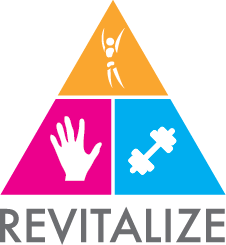We have a fantastic post from Iulia Barta, Revitalize herbalist who is going to be showing you how to create teas and meals using common household and garden findings to reduce your inflammation, improve your digestion and boost your immune system.
We’re all doing our part to keep ourselves and others safe from the virus but remember, the healthier we are, the more we can protect ourselves and others.
Interested in how your diet and herbs can help you to improve your health?
It all starts with a free consultation. If you let us know what your available times are, we’ll book you in with Iulia at your convenience
“Hi, I’m Iulia Barta, medical herbalist from the Revitalize clinic in Gravesend and today I’m here to speak to you about herbs that we can grow at home and what we might use them for, and inspire you to use them yourself!
So, let’s start with, guess what? Stinging Nettle! Very easy to recognise it, it grows everywhere and you’ve probably got some growing in your garden if you let it go wild for a bit. You can use it to make herbal tea, just add hot water. You can use it in stews and soups, it’s very nice with potato and onions. It doesn’t sting once it’s cooked. Known as an overall nourisher and strengthener, stinging nettle leaf (Urtica dioica) is full of vitamins and minerals most notably magnesium, calcium, iron, and protein that can be easily assimilated. It’s diuretic so it can help reduce water retention, it also has an antihistamine so it can help reduce seasonal allergies such as hayfever. The root is beneficial for prostate problems whilst the seeds are a great kidney tonic. More info about Stinging Nettle here https://theherbalacademy.com/a-family-herb-stinging-nettle-leaf-uses/
Number 2. Thyme! Thymus vulgaris is the Latin name. Can be used fresh or dry, easy to grow, you can sometimes find it in small pots in supermarkets and then you can repot it and keep it forever! A great antiviral and antimicrobial herb, fantastic winter support! It’s also antiflatulent so if you have issues with bloating you can use it for that. N.B. Not safe in pregnancy in therapeutic quantities. Have you ever tried Thyme lemonade! It’s addictive! Use freshly squeezed lemon juice, mixed with a hot infusion of thyme and ginger, add some honey or preferred sweetener and enjoy it! Read more about Thyme here: https://theherbalacademy.com/4-reasons-thyme-is-an-herb-for-winter-health/
Number 3. Fennel (Foeniculum vulgare). Often used as part of herbal tea bags as it adds a lovely, sweet taste. However, did you know that fennel doesn’t actually contain any sugar so it’s safe for people who need to keep their blood sugar levels stable. It’s a great digestive herb, helps to reduce bloating and cramps. It’s also a great herb for nursing mothers to boost milk production. All parts are edible. Can be grown from seed or you can get a baby plant from plant nurseries such as the Herbal Haven. More about Fennel here:
Improve your health with tailored plant remedies.
Are you looking for a safe and effective natural treatment for your symptoms or chronic condition? Herbalists are trained at degree level and can assess your health both medically as well as holistically to prescribe herbal remedies that are safe to take alongside any prescriptions from your doctor.
Herbalists combine plant remedies (in the form of personalized tinctures, teas, ointments) with nutritional supplements and expert dietary advice to help you reach your health goals.
Herbal remedies can be used to support the management of a wide range of symptoms and conditions including:
- Poor immunity: recurrent infections
- Digestive problems: IBS, Crohn’s, Colitis, diverticulitis, dyspepsia, constipation
- Skin problems: eczema, psoriasis
- Joints and bones: osteoarthritis, back pain, rheumatoid arthritis
- Thyroid problems
- Emotional issues: anxiety, mild to moderate depression
- Insomnia
- Migraines and headaches
- Fatigue, poor stamina & slow metabolism
- Hormonal issues: PMS, irregular periods, menopausal symptoms
- Infertility
- Prostate problems
- Heart and circulation
- Respiratory problems: bronchitis, asthma
- Diabetes type 2
- High blood pressure (mild to moderate)
- High cholesterol
The herbal treatment is adapted to suit all ages and conditions including children, elderly and pregnant women.
Contact our medical herbalist today to find out exactly how she can help with herbal remedies.

